
The Israeli government narrowly avoided collapse on Wednesday, after Haredi parties in the coalition threatened to vote in favor of early elections.
While the vote never came to fruition, the very fact that Israel got this close to elections shook the country, and the controversy that led to this hasn’t been fully resolved yet.
Wait, the government in Israel can collapse?
In Israel, the government can collapse before it completes its four-year term, sparking early elections, mostly tied to its parliamentary system and the way coalitions work.
Israeli governments are really unstable. The last time a government made it through its entire four-year term was in 1988!
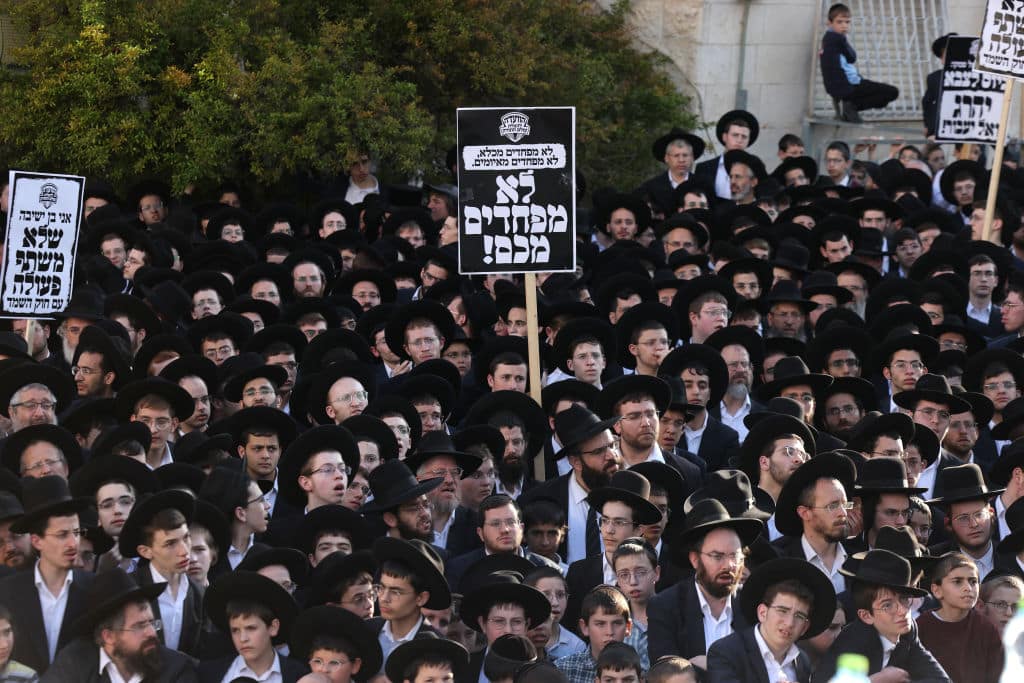
There are a bunch of different ways governments can collapse in Israel, more than in almost any other country.
For one, the prime minister can, in coordination with the president, decide to dissolve the government and spark early elections. The Knesset can try and appoint another leader to form a new government to avoid elections, but if it fails to do so within a certain time period, elections are called.
If, after elections, the Knesset fails to form a government coalition within a specific time, the country automatically goes back to elections.
Elections are also automatically called if the government fails to pass a state budget within a specific period after it takes office.
The Knesset can also hold a vote of no confidence in the government. For such a vote to pass, the MKs supporting the vote have to propose an alternate government coalition to replace the current one, including a new prime minister.
The Knesset can also pass a law to dissolve itself and call early elections. In this method, the law has to pass four votes and include the date of new elections, traditionally within five months from the date the law was passed.
This time, that’s the method used. On Wednesday, the Knesset passed the bill to dissolve the Knesset in its first vote. It now has to go through three more votes before it actually sparks elections.
How did we get here?
While the opposition has been calling for elections since the war began, the coalition has so far rejected such demands outright. Since the coalition holds the majority in the Knesset (68 out of 120 seats), it was able to prevent any attempts to vote on early elections. At least until now.
What changed was that the parties representing Haredim – ultra-Orthodox Jews – decided to support the vote for early elections in the past week. There are two Haredi parties in the Knesset: United Torah Judaism, which represents Haredim from Ashkenazi communities, and Shas, which represents Sephardi Haredim from Mizrachi communities.
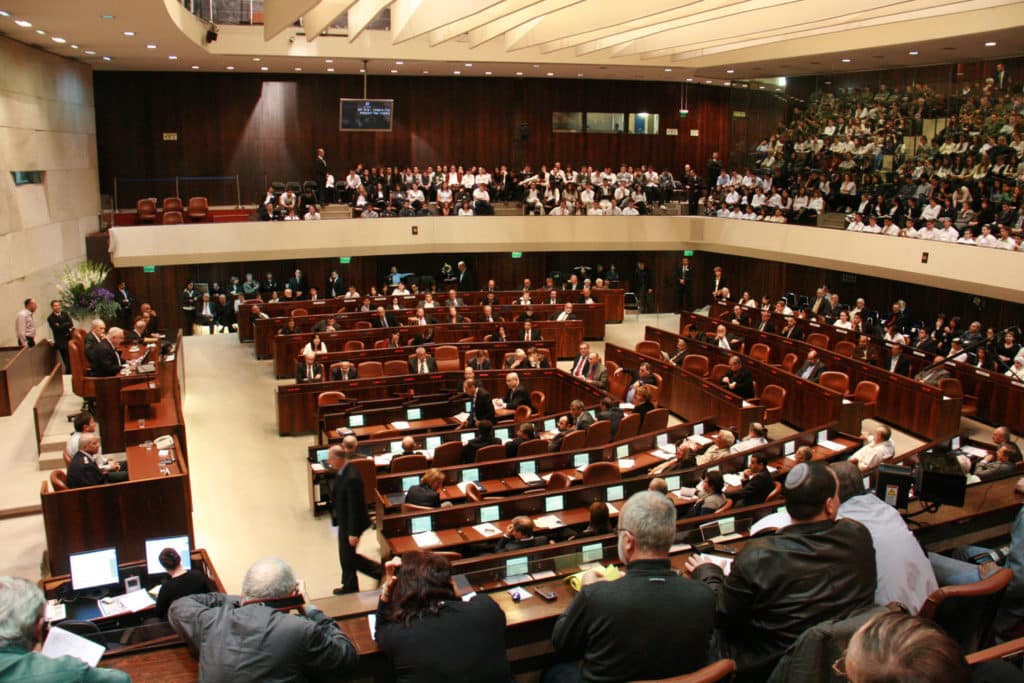
UTJ holds seven seats in the Knesset, while Shas holds 11 seats. Together, they were able to remove the coalition’s majority and pass the vote.
Why did they threaten to switch sides now?
It all centers around the draft to the IDF.
The Haredi draft exemption
In Israel, all citizens are legally required to register for the draft at the age of 18, though not all are ultimately drafted into the military.
Exemptions are granted for various reasons, including to married women and mothers, individuals with specific medical conditions, women who observe Shabbat and keep kosher, and Arab Israelis, among others.
Despite not fitting into one of the standard exemption categories, Haredi yeshiva students typically receive a “deferral” from military service, allowing them to avoid the draft by declaring that “Torah study is his work” and demonstrating full-time study in a yeshiva.
This arrangement, which has been in place since the state’s founding, was initially agreed upon by Israel’s first prime minister, David Ben-Gurion, to exempt a few hundred students.
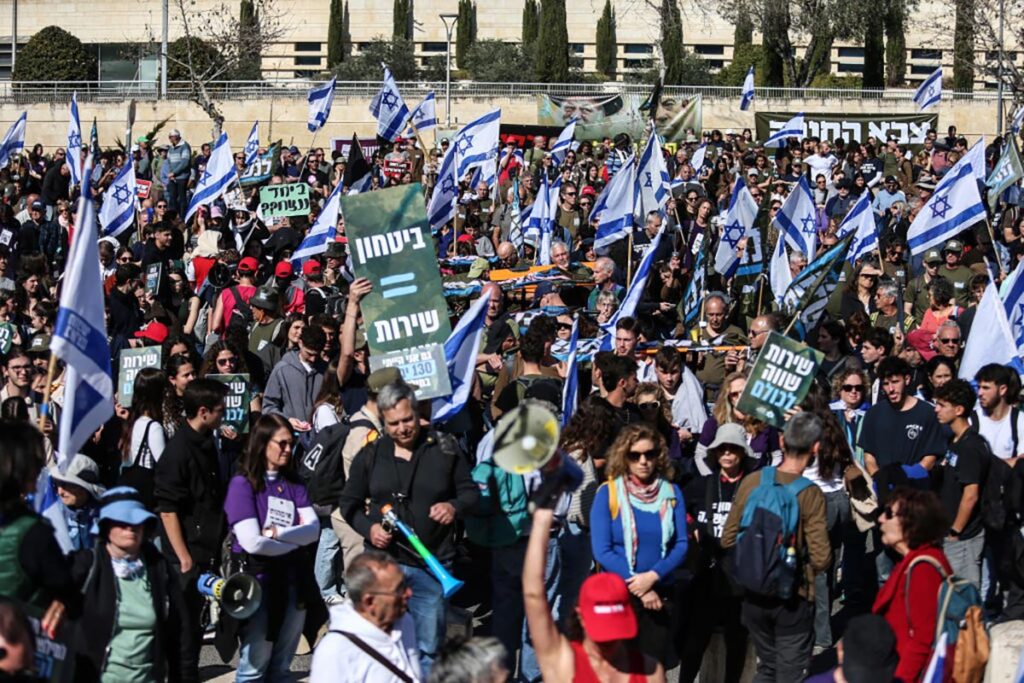
Since then, however, the number of Haredi youth who use the arrangement has surged to tens of thousands, leading to increased criticism from other Jewish citizens who are required to serve.
Already in 1998, the High Court of Justice (part of Israel’s Supreme Court) ruled that the exemption was too large and needed to be regulated to ensure some Haredim were drafted.
A commission known as the Tal Committee got to work on a new law to make the arrangement more equitable. In 2002, a law was passed providing a deferment of service to yeshiva students who spent all day in yeshiva. Once they reached 22, these students would need to decide whether to join the army for a little over a year or do a year of national service (volunteer work in the emergency services or charitable or educational organizations). The idea was that the law would eventually lead to increased recruitment among Haredim.
However, after several years, the state realized that the law wasn’t actually leading to an increase in enlistment. In light of the failure, in 2012, the High Court of Justice ruled that the law had failed to serve its purpose and violated the right to equality.

Since then, the issue has jumped between the government and the courts. Many governments since have relied on the Haredi parties as coalition members, making it nearly impossible for them to pass legislation on the issue that the courts would approve.
The Haredi parties have refused to consider any law that would lead to widespread enlistment among Haredi young men, so the laws passed have largely just extended the existing exemption without any changes. The parties have said that they oppose enlisting any Haredi young men due to concerns that interactions with other Israelis during their military service would cause them to leave the ultra-Orthodox way of life. They have also presented the issue as a threat to the full-time Torah study that many Haredi young men focus on, although they’ve also rejected proposals to only draft young men who don’t spend their days in yeshivas.
This isn’t the first time a government’s stability has been threatened by the draft issue.
In 2018, debates surrounding the law contributed to the dissolution of the 20th Knesset, leading to a series of successive elections and short-lived governments.
Since then, discussion of the issue somewhat abated until the start of Prime Minister Benjamin Netanyahu’s current government.
As Netanyahu’s new government was being formed, the right-wing Likud Party signed agreements with Haredi parties to pass a law exempting yeshiva students from the draft.

The issue was temporarily sidelined due to the Oct. 7 attacks and the war in Gaza, but resurfaced in February 2024 when Israel’s Defense Ministry proposed laws to increase IDF service length due to manpower shortages. The IDF says it needs 10,000 more soldiers than it has, including about 6,000 combat soldiers.
The announcement sparked outrage and renewed the conversation about requiring Haredim to draft, as opponents argued that the manpower shortage could easily be dealt with by requiring Haredim to share the load.
Then, last March, the High Court of Justice ruled that the state couldn’t wait any longer and needed to start drafting Haredim.
The previous law regulating the exemption for Haredim expired in June 2023, technically requiring the IDF to begin drafting those currently exempt. However, the government approved a decision not to draft them while working on a new law.
Efforts to reach an agreement on a new bill were unsuccessful, despite meetings between Prime Minister Netanyahu, government officials, and Haredi party leaders. Ultra-Orthodox leaders warned that any bill with significant recruitment quotas or financial sanctions could cause them to leave the government.
However, many members of both the opposition and the coalition have demanded that any new bill include such quotas and sanctions to ensure it can actually be enforced.
Within the coalition, the main leader of the effort to recruit Haredim is Yuli Edelstein, the chair of the Knesset Foreign Affairs and Defense Committee. His committee is largely responsible for formulating and approving any bill on the issue. He has been a staunch opponent of any law that doesn’t include quotas and sanctions.
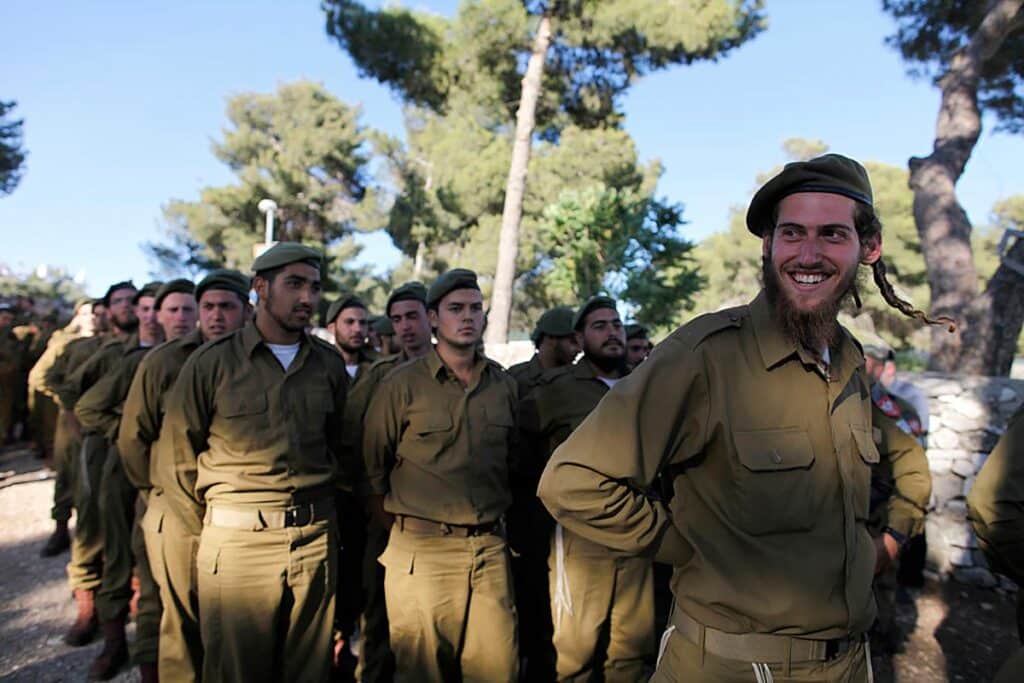
The impasse between Edelstein and the Haredim brought the issue to a head in recent weeks. Repeated efforts were made to reach some kind of compromise, but both sides refused to drop their demands in a significant enough way to reach an agreement.
In tandem, the IDF announced it would be sending out tens of thousands of draft orders soon to Haredi young men, following the existing law requiring everyone to be drafted equally. The IDF added that it would act to enforce the law against anyone who didn’t show up for the draft as required.
With the pressure rising, the Haredi parties decided they wouldn’t wait any longer for the current government to reach an arrangement that they would find acceptable and that it was time to call elections.
What changed?
However, on Wednesday evening, just hours before the vote on elections was set to take place, the Haredim and Edelsten announced that they’d reached an agreement on a list of principles concerning a draft law. In response, the Haredi parties withdrew their support for early elections, and the vote failed.
Reportedly, the agreed-upon principles will still delay the implementation of most of the sanctions on draft dodgers. However, certain sanctions will start immediately, including the suspension of draft dodgers’ driver’s licenses, restrictions on leaving the country, and the cancellation of subsidies for academic studies.
After six months, additional sanctions will take effect if recruitment quotas aren’t met, including the removal of subsidies that Haredim receive for daycare and public transportation.
After a year, Haredim will lose many of their social security benefits if the quotas aren’t met.
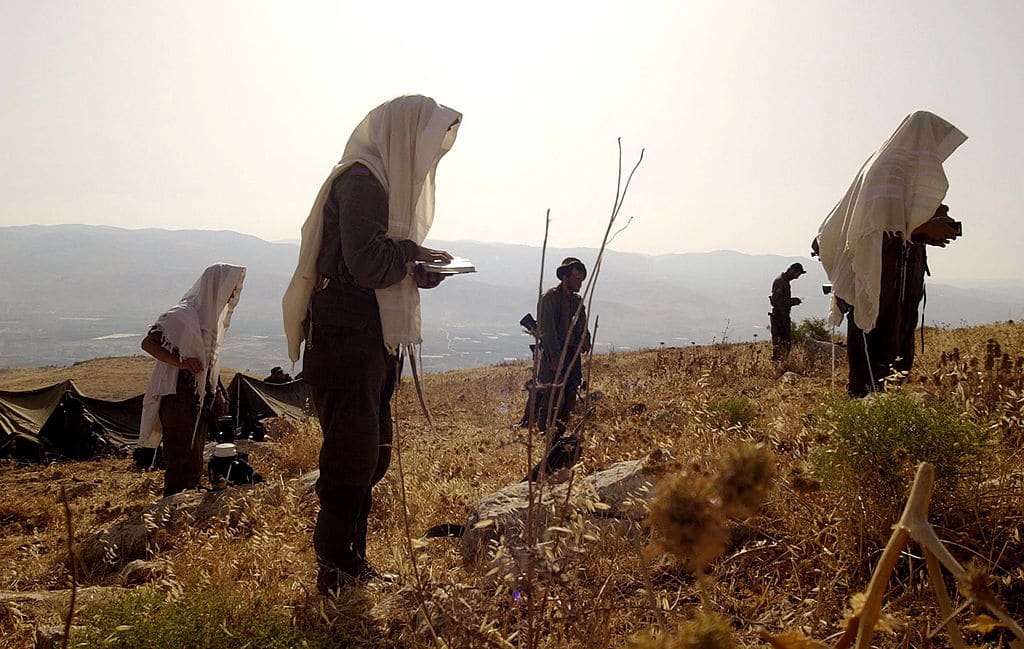
While at first glance this looks like a law that should be amenable to both sides, a lot of Israelis aren’t convinced.
For one, this is only a document of agreed-upon principles, not an actual bill. Many Israeli analysts noted that once an actual bill is proposed, one of the two sides may renew the argument.
Additionally, the delay in many of the more significant sanctions has some worried that the law won’t be effective. The insistence of the Haredi parties on delaying the implementation of sanctions has many concerned that they’ll just demand a new law before the sanctions can take effect.
Others argued, however, that if these principles are actually the basis for a new law, even with the delayed sanctions, it will be extremely difficult, if not impossible, for the law to be overturned at a later point. This is especially the case since the Haredi parties will have agreed publicly to this version.
Additionally, in just a little over a year, the government’s four-year term will end and elections will be held, meaning the Haredim may not have a supportive coalition to rely on to draft a new law, even if they want to.
In any case, drafting and passing the conscription law, even based on these principles, isn’t going to be a quick process. Passing a law in Israel can take months or even years, so there is a lot of time during which a lot could change.
What happens now?
In the meantime, the opposition now has no realistic tools to dissolve the Knesset for the next six months. A new bill to dissolve the government can only be voted on before then if the Speaker of the Knesset, who’s a member of the coalition, agrees that there are unique circumstances that should allow this. That will only happen if the coalition itself decides it wants early elections, although that has happened in the past.
It remains unclear, however, what other options the Haredim or any of the other parties in the Knesset have, even after elections.
Recent polls have indicated that the Knesset will still be split about equally as it is now. That means that either the Haredim will need to sit with the parties they’re already with, or they’ll be left in the opposition while a party or two currently in the opposition join with a party or two in the current coalition.
How the current government or any future one could forcibly conscript the tens of thousands of Haredim who would need to be drafted also remains unclear. Some Haredi leaders are warning that young men would prefer jail over enlistment, and previous attempts at limited enlistments have led to protests and riots.
